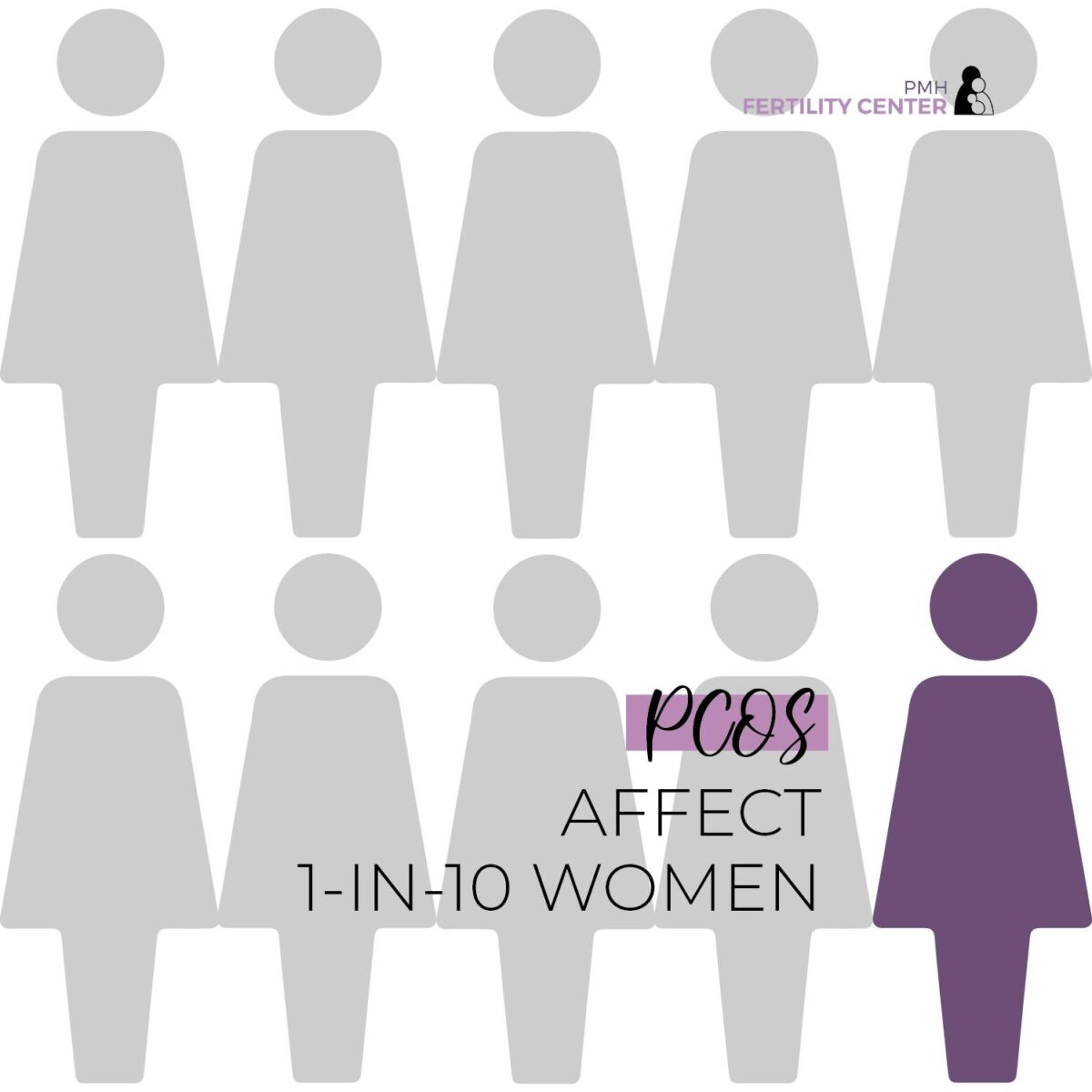Contents
Polycystic Ovary Syndrome (PCOS) and Fertility Challenges: Navigating the Path to Parenthood
Polycystic Ovary Syndrome (PCOS) is a common hormonal disorder affecting people with ovaries, and it’s a leading cause of infertility in women. If you’re one of the many individuals dealing with PCOS-related fertility challenges, you’re not alone. In this comprehensive guide, we’ll delve into the intricate details of PCOS, its impact on fertility, and strategies to overcome these challenges on your journey to parenthood.
Understanding PCOS – What Is It?
Polycystic Ovary Syndrome, often abbreviated as PCOS, is a complex hormonal and metabolic condition. It’s characterized by the presence of small cysts on the ovaries, irregular menstrual cycles, insulin resistance and an excess of male hormones called androgens. PCOS affects up to 10% of women of childbearing age, making it one of the most prevalent reproductive disorders.
The Causes of PCOS
The exact cause of PCOS is not fully understood, but it’s believed to involve a combination of genetic and environmental factors. Insulin resistance, where the body’s cells don’t respond effectively to insulin, is a common feature of PCOS. This leads to elevated insulin levels, which in turn can trigger metabolic disorders such as diabetes and increased androgen production by the ovaries.
PCOS and Fertility
One of the primary concerns for individuals with PCOS is its impact on fertility. The hormonal imbalances associated with PCOS can disrupt the normal ovulation process. Without regular ovulation, the chances of conceiving naturally are significantly reduced.
Here’s how PCOS affects fertility:
- Anovulation: Many women with PCOS experience anovulation, which means they don’t release a mature egg during their menstrual cycle. Without ovulation, there’s no egg available for fertilization.
- Irregular Menstrual Cycles: PCOS often leads to irregular periods. This inconsistency makes it challenging to predict when ovulation might occur.
- Hormonal Imbalances: Elevated levels of androgens, such as testosterone, can interfere with the development and release of eggs from the ovaries.
- Insulin Resistance: Insulin resistance can lead to high insulin and glucose levels, which, in turn, stimulate the ovaries to produce more androgens. This further disrupts the ovulation process.
Strategies for Overcoming PCOS-Related Fertility Challenges
While PCOS can present fertility challenges, there are effective strategies to enhance your chances of conception:
- Lifestyle Modifications: Making lifestyle changes such as maintaining a healthy weight, exercising regularly, and following a balanced diet can help improve insulin sensitivity and regulate menstrual cycles.
- Medications: Fertility medications like clomiphene citrate or letrozole can induce ovulation in individuals with PCOS.
- In vitro Fertilization (IVF): IVF is a fertility treatment that involves stimulating the ovaries to produce multiple eggs, which are then retrieved, fertilized in a lab, and implanted in the uterus.
- Lifestyle Management: Managing stress through practices like yoga, meditation, or acupuncture can help regulate hormonal imbalances.
- Supplements: Some individuals with PCOS may benefit from supplements like inositol, which can improve insulin sensitivity and ovulation.
- Dietary Changes: A low-carbohydrate diet may help manage insulin levels and improve fertility outcomes in individuals with PCOS.
The Importance of Seeking Professional Guidance
If you’re facing PCOS-related fertility challenges, it’s essential to seek the guidance of a reproductive specialist or fertility expert. They can provide a tailored treatment plan based on your unique situation, increasing your chances of successful conception.
In Conclusion
Polycystic Ovary Syndrome is a common metabolic/hormonal disorder that can pose significant fertility challenges for individuals with ovaries. However, with the right strategies, lifestyle modifications, and medical interventions, many people with PCOS can achieve their dream of parenthood.
If you’re navigating PCOS-related fertility issues, remember that you’re not alone, and there is support and effective treatments available to help you on your path to becoming a parent.
Don’t let PCOS define your fertility journey. Take proactive steps, seek expert guidance, and embark on your path to parenthood with confidence.

